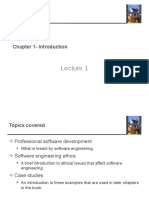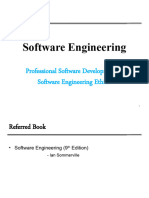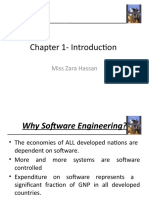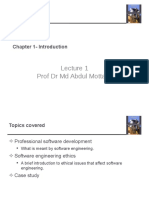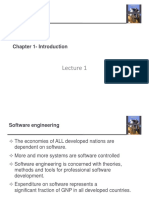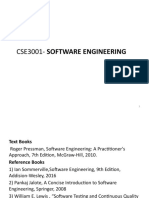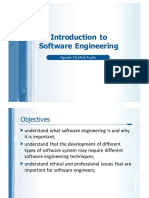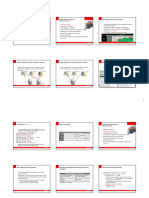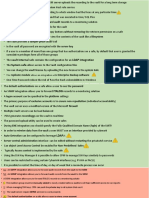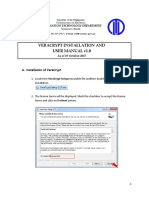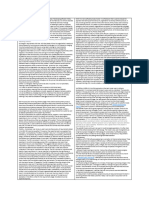0% found this document useful (0 votes)
48 views33 pagesLecture 01
The document discusses software engineering and its key concepts. It defines software engineering as utilizing knowledge and principles to design, build, and analyze software objects. It notes that software costs dominate computer system costs and are more expensive to maintain than develop. The document then asks and answers frequently asked questions about software engineering, discussing topics like what software is, attributes of good software, differences between software engineering and computer science/system engineering, and challenges in the field.
Uploaded by
Ziad nafeaCopyright
© © All Rights Reserved
We take content rights seriously. If you suspect this is your content, claim it here.
Available Formats
Download as PDF, TXT or read online on Scribd
0% found this document useful (0 votes)
48 views33 pagesLecture 01
The document discusses software engineering and its key concepts. It defines software engineering as utilizing knowledge and principles to design, build, and analyze software objects. It notes that software costs dominate computer system costs and are more expensive to maintain than develop. The document then asks and answers frequently asked questions about software engineering, discussing topics like what software is, attributes of good software, differences between software engineering and computer science/system engineering, and challenges in the field.
Uploaded by
Ziad nafeaCopyright
© © All Rights Reserved
We take content rights seriously. If you suspect this is your content, claim it here.
Available Formats
Download as PDF, TXT or read online on Scribd
/ 33



